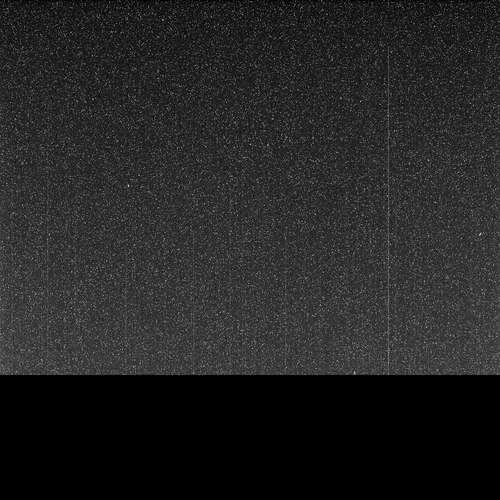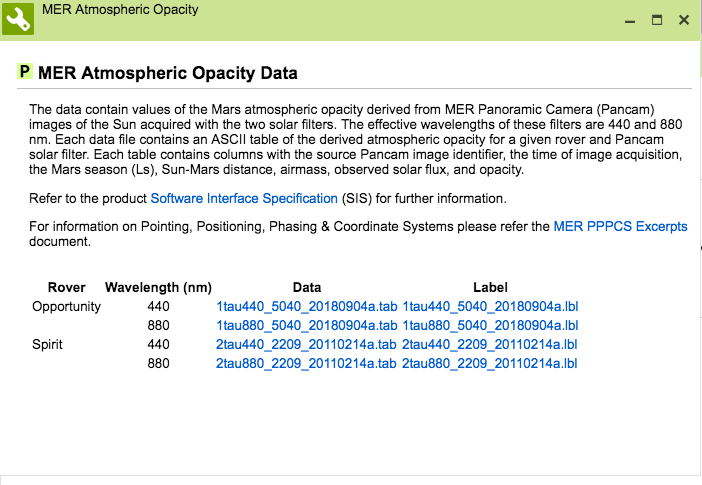@ahiijny added a direct link to the Sol 5110-5114 MER B Downlink Report. These are the final days that signals were received from Opportunity.
The message "Tau Value is NOT a Typographical Error" calls attention to its value here of 10.8. See section(s) in bold below.
Question: What isOpportunity's last tau in this contextwas 10.8; what does that mean, and how is it defined mathematicallytau defined mathematically and experimentally determined?
Sol 5110-5114 MER B Downlink Report
Mission Manager
*** Tau Value is NOT a Typographical Error ***
Overall Assessment
Opportunity is currently in the midst of a severe dust storm though all subsystems are still operating as expected in RAM mode as of the Sol 5111 UHF pass. Solar array energy is approximately 22 W-hrs, with a measured tau of 10.8. This Tau measurement is the highest ever recorded from a ground station on the planet Mars. Dust factor was previously estimated at 3.27 as of Sol 5108.
With analysis from the data from the Sol 5111 downlink, we expected the rover to enter a low power fault mode very soon after that point in time. Since then, there have been no beeps nor fault windows detected during DSN coverage periods. This behavior is fully in line with array energy expectations, as Opportunity will use deep sleep during such times. We are now waiting for the skies above Opportunity to clear enough for the solar energy to support the fault communications windows (which will send signals to Earth). The team has suspended nominal sequence operations, and we are listening every day for Opportunity to talk to us via one of the fault windows. Thermal predictions carry a positive medium to long term message, whether it takes several sols or several weeks for the storm to weaken and let the sun through. We expect no thermal damage to the batteries or computer systems, and every sol is one closer to summer warmth. Obviously, the team is concerned. But, all of the data and our knowledge indicate that Opportunity is likely to be doing more geological experiments during the upcoming Martian summer, helping unwrap the mysteries of Endeavour crater. Until then, our current mission phase is one of patience and readiness.
Opportunity did not drive during this period.
Summary
Sol 5110: Recharge
Sol 5111: Pancam wide range Tau crit 1325LST, Pancam Special Stow 315 LVL AZ
Sol 5112: Likely Deep Sleep/Low Power Fault Mode
Sol 5113: Likely Deep Sleep/Low Power Fault Mode
Sol 5114: Likely Deep Sleep/Low Power Fault Mode
Odometry: Total odometry as of the Sol 5086 drive: 45161.04 meters (28.06 miles).
Attachments: (1) Sol 5111 Pancam Tau (10.8).
Attachments: sol5111_pancam_tau
sol5111_pancam_tau:
From https://an.rsl.wustl.edu/merb/merxbrowser/an3.aspx

